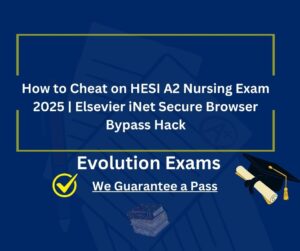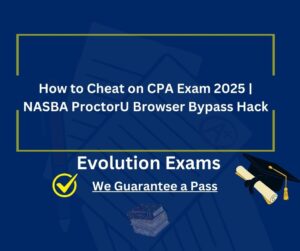The Advantages of Passing Exams Without Traditional Studying

Advantages of Passing Exams Without Traditional Studying
Passing exams without traditional studying offers several advantages. Students can save time, reduce stress, and focus on skill development instead. By using alternative methods, students can still achieve the same results while bypassing the typical pressure associated with exam preparation. This approach not only enhances efficiency but also provides opportunities to focus on long-term career goals.
Understanding Traditional Studying
Traditional studying often involves long hours of memorizing information, attending review sessions, and completing practice tests. While this method can be effective for some students, it can also be time-consuming and stressful. The pressure to perform well on exams can lead to anxiety and burnout, which can negatively impact a student’s overall performance and well-being.
The Benefits of Alternative Methods
By exploring alternative methods to traditional studying, students can achieve better results with less stress. Here are some of the key advantages:
A. Time Efficiency
Traditional studying can be incredibly time-consuming, requiring students to spend hours memorizing information and completing practice tests. By using alternative methods, students can save valuable time that can be used for other activities, such as internships, part-time jobs, or personal interests.
B. Reduced Stress and Anxiety
The pressure to perform well on exams can lead to significant stress and anxiety for many students. Alternative methods, such as project-based assessments or portfolio evaluations, can reduce this pressure by providing a more flexible and less stressful way to demonstrate knowledge and skills.
C. Focus on Skill Development
Traditional studying often focuses on memorizing information rather than developing practical skills. By using alternative methods, students can focus on developing skills that are more relevant to their future careers, such as critical thinking, problem-solving, and communication.
D. Enhanced Learning Experience
Alternative methods can provide a more engaging and interactive learning experience. For example, completing a project or creating a portfolio can allow students to apply their knowledge in a practical way, leading to better understanding and retention of the material.
Alternative Methods to Traditional Studying
There are several alternative methods that students can use to pass exams without traditional studying. Here are some of the most effective strategies:
A. Project-Based Assessments
Project-based assessments allow students to demonstrate their knowledge and skills through practical application. This method can be particularly effective for subjects that require hands-on learning, such as science, engineering, or business. By completing a project, students can showcase their ability to apply theoretical knowledge to real-world problems.
B. Portfolio Evaluations
Portfolio evaluations involve compiling a collection of a student’s best work throughout the course. This method provides a more comprehensive and authentic representation of a student’s abilities and knowledge. Portfolios can include written work, presentations, projects, and other forms of assessment that demonstrate a student’s skills and understanding.
C. Online Learning Platforms
Online learning platforms offer a variety of resources and tools that can help students prepare for exams without traditional studying. These platforms often provide interactive lessons, practice quizzes, and other resources that can make learning more engaging and effective. Additionally, online platforms can be accessed at any time, providing students with the flexibility to study at their own pace.
D. Professional Assistance
Seeking professional assistance can be a highly effective way to pass exams without traditional studying. Experts in academic coaching and test preparation can provide personalized guidance and strategies to help students succeed. These professionals can help students understand the material, develop effective study habits, and prepare for alternative assessment methods.
Tips for Successful Alternative Preparation
If you decide to use alternative methods to pass exams, there are several tips to help ensure your success:
A. Understand Your Options
Before you make any decisions, it’s important to understand all your options. Speak with your academic advisor or institution to learn about the alternative assessment methods available and the specific requirements for each.
B. Develop a Study Plan
Even if you’re using alternative methods, it’s still important to develop a study plan. Set clear goals and deadlines for yourself, and create a schedule that allows you to focus on one thing at a time. This will help you stay organized and avoid last-minute cramming.
C. Stay Engaged and Motivated
Staying engaged and motivated is key to success. Find ways to make learning enjoyable and relevant to your interests. Engage with the material in a way that works best for you, whether it’s through hands-on projects, interactive lessons, or other methods.
D. Seek Support
If you’re struggling with any aspect of your preparation, don’t hesitate to seek support. Speak with your teachers, academic advisors, or peers. Many institutions offer resources such as tutoring, study groups, or counseling services that can help you stay on track.
Conclusion
Passing exams without traditional studying can be a smart and efficient way to achieve your academic goals. By understanding your options, developing a study plan, and using alternative assessment methods, you can save time, reduce stress, and focus on skill development. Remember, the key to success is finding the method that works best for you and staying committed to your goals.



